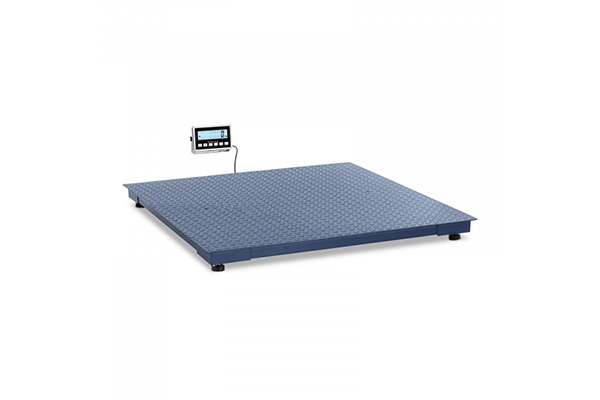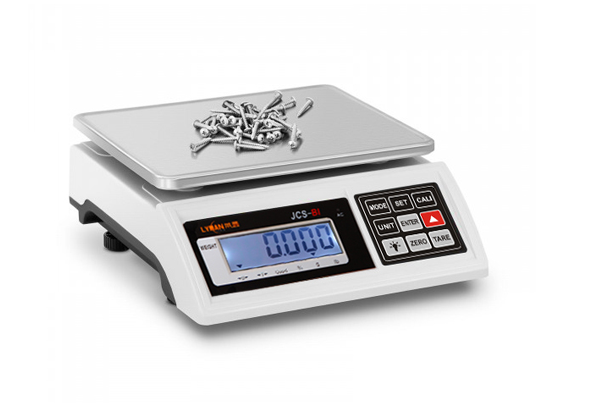Choosing the right weighing equipment is crucial for industrial efficiency and accuracy. Bench and floor scales offer distinct advantages depending on the size, weight, and volume of materials being measured. Understanding their differences ensures precise measurements, improved workflow, and reduced operational errors. In this guide, we explore which type of scale best fits various industrial applications, helping you make an informed decision for your facility.

Bench Scales in Industrial Use
What Are Bench Scales?
Bench scales measure weight in industrial environments. These scales sit on tables or workstations. Their compact design allows workers to use them in areas with limited space. Bench scales offer shock resistance, which protects sensitive components during daily use. Many models provide both AC and battery power options. This flexibility lets operators move the scales between workstations or use them in locations without outlets. Bench scales feature easy-to-read displays and simple controls. These features help workers complete tasks quickly and accurately.
Common Industrial Applications
Bench scales support a wide range of industrial applications. Workers use them in manufacturing to weigh parts and materials. Inventory teams rely on bench scales to count items and track stock levels. Shipping departments use these scales to verify package weights before sending goods. Quality control teams check product consistency with bench scales. Food service workers use bench scales to portion ingredients and maintain recipes. The versatility of bench scale applications makes them valuable in many industries.
Key Advantages
Bench scales offer several important benefits. Their compact size saves space in crowded work areas. Shock resistance protects the scales from damage during heavy use. AC and battery options allow for flexible placement. Bench scales feature easy calibration and maintenance routines. Many models come with different configuration options, such as stainless steel platforms or digital connectivity. The price range for bench scales varies, so companies can select models that fit their budgets. Bench scale benefits include reliability, accuracy, and adaptability.
|
Feature |
Description |
|---|---|
| Compact Design | Fits small workspaces |
| Shock Resistance | Protects sensitive components |
| Power Options | AC and battery available |
| Configuration | Multiple platform and display choices |
| Price Range | Affordable to premium models |
Floor Scales for Heavy Loads
What Are Floor Scales?
Floor scales measure weight for large and heavy items. These scales sit directly on the ground and feature wide platforms. Their design supports high capacity and bulk materials, making them ideal for industrial environments.
Floor scales use strong materials like steel to handle tough conditions. Many models include ramps for easy loading and unloading. Workers can place pallets, drums, or containers on the platform to check weight quickly.
Industrial Uses
Industries rely on floor scales for many tasks. Manufacturing plants use them to weigh raw materials and finished goods. Chemical companies check the weight of bulk powders and liquids.
Food processing facilities measure large batches of ingredients with floor scales. Shipping centers use these scales to verify freight weight before transport. Floor scale applications also include recycling centers and warehouses.
|
Industry |
Typical Use |
|---|---|
| Manufacturing | Weighing bulk products |
| Chemicals | Measuring powders/liquids |
| Food Processing | Portioning ingredients |
| Shipping | Freight verification |
| Recycling | Sorting materials |
Main Benefits
Floor scales offer several advantages for industrial use. Their large size allows workers to weigh heavy loads with ease. High capacity ensures accurate weight readings for bulk items.
Durability stands out as a key benefit. Floor scales resist damage from frequent use and harsh environments. Installation requires a stable surface and enough space for safe operation.
Floor scale benefits include strong construction, high accuracy, and flexibility for many industries. These scales support efficient workflows and improve safety in busy facilities.

Bench and Floor Scales: Key Differences
Capacity and Size
Bench and floor scales differ most in their weight capacity and platform size. Bench scales handle small to medium items, making them ideal for tasks like weighing parts or packages. Floor scales support larger items and heavy loads, such as pallets or drums.
|
Scale Type |
Typical Weight Capacity | Platform Size |
Best For |
|---|---|---|---|
| Bench Scales | Low to Medium | Small/Compact | Small items, parcels |
| Floor Scales | High | Large/Wide | Bulk goods, heavy loads |
Precision and Accuracy
Precision matters in many industrial settings. Bench scales provide high accuracy for small items and detailed measurements. Floor scales offer reliable readings for heavy loads, but may not match the fine precision of bench scales for tiny objects.
Space and Installation
Space requirements influence which scale fits best. Bench scales fit on tables or workstations, saving space in crowded areas. Floor scales need open floor space and a stable surface for safe operation.
Durability and Maintenance
Durability affects long-term performance. Floor scales use strong materials to resist damage from heavy use and harsh environments. Bench scales also offer shock resistance, but may not withstand the same level of abuse as floor scales.
Routine maintenance keeps both types of scales accurate and reliable.
Summary Table: Bench and Floor Scales Comparison
|
Feature |
Bench Scales |
Floor Scales |
|---|---|---|
| Capacity | Small to Medium | Large/Heavy |
| Precision | High for small items | Reliable for bulk loads |
| Space Needed | Minimal | Significant |
| Durability | Shock resistant | Heavy-duty construction |
| Maintenance | Simple routines | May require more upkeep |
Which Scale Is Optimal?
- Bench scales work best for small items, limited space, and tasks needing high accuracy.
- Floor scales suit bulk materials, heavy loads, and environments where durability is critical.
- Industrial teams should assess their needs before choosing bench and floor scales for each scenario.
Choosing the Right Scale
Application-Based Recommendations
Selecting the right scales starts with understanding the job requirements. Workers should consider the size and weight of items they need to measure. Industrial environments often require scales that match the load capacity and available space.
A simple checklist helps teams decide:
- What is the maximum weight to measure?
- How much space is available for scales?
- Is high precision needed for small items or bulk loads?
- Will the scales be used in wet or dusty areas?
Cost Factors
Budget plays a key role in choosing scales. Entry-level bench scales cost less and suit basic tasks. Floor scales cost more because they handle heavier loads and offer extra durability.
A table can help compare costs:
|
Scale Type |
Typical Cost Range |
Best Use Case |
|---|---|---|
| Bench Scales | Low to Medium | Small items, parcels |
| Floor Scales | Medium to High | Bulk goods, heavy loads |
Teams should balance cost with features. Investing in reliable scales saves money on repairs and replacements.
Safety and Compliance
Safety matters in every industrial environment. Scales must meet local safety standards and industry regulations. Workers should check if scales have non-slip surfaces or overload protection.
Some industries require scales with certifications for food or chemical use. Teams should confirm that scales meet these requirements before purchase.
Conclusion
Choosing the right bench and floor scales ensures accuracy, efficiency, and reliability in industrial operations. Bench scales excel in precision and space-saving for small to medium items, while floor scales handle heavy loads with durability and high capacity. By assessing load size, workspace, and accuracy needs, industrial teams can select the optimal scale type, enhancing workflow, safety, and long-term performance
